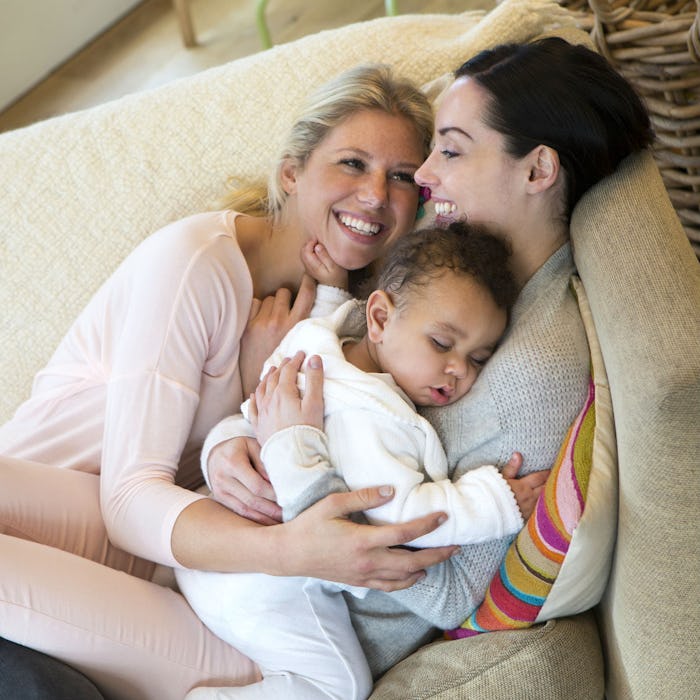Life

How To Help Your Relationship After Having A Baby, Because Things Will Be Different
“Babies change everything. And I mean everything.” These words are chanted to new mothers everywhere, in large part because they’re so terribly true. New moms have to let their body recover, adjust to fluctuating hormones, and, oh yeah, take care of that brand new human, all while maintaining some semblance of sanity (at least some of the time.) And new dads face their own life changes and challenges, too. It’s no wonder that relationships sometimes falter during this life-changing, beautiful, and stressful phase of life.
So how can couples keep their relationship strong after baby is born? After all, new parents are stressed enough without having to feel disconnected from one another. It turns out there are many ways to help your relationship after having a baby. Of course, the usual relationship advice — communication, compassion, and connection — comes into play here. But there are also some things that are particularly important for new parents. Here are the seven top tips to help your relationship stay strong after having a baby, so you and your partner can work together to provide a stable foundation for your beautiful baby.
Manage Expectations Around Sex
Let’s just address this topic straight away. It’s totally healthy to have sex after having a baby. But according to an article from the New York Times, sexual problems are common among new parents. Between the adjusting to new roles and new schedules (and in some cases, new bodies) resuming sex after having a baby can be a complicated issue that can put a strain on couples. To cope, adopt realistic expectations for intimacy following childbirth (and don’t forget, intimacy isn't limited to sex.). While six weeks is the general time to get a “green light” to return to intercourse, it’s completely fine if you need more time to adjust.
Appreciate One Another
A study from Psychology Today found that many new parents do not feel appreciated by their partner, and their overall satisfaction with role arrangements declined between pregnancy and six months after the baby’s birth. Try to acknowledge when your partner pitches in and thanks them when they do something extra special.
Get On the Same Page Before Baby
Okay, so this advice may not be as helpful if you’re already a parent. But a study from the Council on Contemporary Families found that when both partners feel they are part of this major family decision, they are more likely to be able to meet the challenges of balancing the needs of both partners in terms of work and family. If you’re both on board with having a baby beforehand, you’ll likely have an easier relationship afterward.
Prioritize Time Together
It is crucial for new parents to make time to connect as a couple, even if you just take a few minutes to go for a walk together. By making time for these connections, you can stay in sync with your partner and feel closer to each other.
Address Postpartum Issues
According to the American Congress of Obstetricians and Gynecologists, postpartum depression may include a new mother’s feelings of sadness, anxiety, or despair that may occur in the first few weeks after giving birth. If you or your partner experiences any of these symptoms, see a healthcare provider for guidance.
Sync Up Parenting Styles
You’re fine with letting baby cry it out at night, but he’s up and cribside at the first whimper. It’s okay if your parenting styles sometimes clash, but when it comes to big picture topics, it’s important to be on the same page.
Deal with Financial Concerns
Whether you’re a one-or two-income household, chances are your financial priorities will shift the second that junior enters the world. Kids are expensive! The pressure of financially providing for a new family member can stress out new parents. Fortunately, you can address your financial priorities together and come up with a budget that works best for your new family.